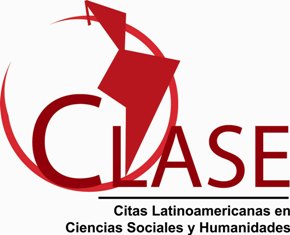A disciplina contabilidade e sustentabilidade na UFPR: relato de experiências
DOI:
https://doi.org/10.22169/revint.v12i27.1020Resumo
RESUMOEste artigo apresenta o desenvolvimento ea estrutura cursos de Contabilidade Ambiental ensinado na UFPR (graduação, pós-graduação e mestrado), com a agregação da experiência da ITCP e da troca de experiências com o INDIOS / UNIOESTE ea CEAM / UACh. A consciência das questões ambientais é uma oportunidade para ampliar o conhecimento e atividades profissionais em diversas áreas do conhecimento. Para a contabilidade, um curso de contabilidade ambiental, no seu entendimento mais amplo é a realização de transdisciplinaridade e também a integração do tripé: ensinar-pesquisa-extensão e mostrar também como informações da contabilidade pode ser aplicada no planejamento estratégico das regiões , entidades e pessoas em questões ambientais, receitas, gerenciamento de custos e análise de desempenho. Esta disciplina reforça o conhecimento da área, acrescentam outros ramos do conhecimento, outras dimensões e valores para a análise contábil. Conclui-se que os desafios apresentados no projeto e na execução desta disciplina podem ser notados em resultados significativos, tanto na evolução e aprimoramento da disciplina em termos de abordagem metodológica ou uma aprovação alta do ponto de vista dos alunos. Talvez o mais importante deste curso é negar a tendência do represamento disciplinar observado por Patten e Williams (1990) e reafirmado pelo AECC (1990), Grinnell e Hunt III (2000) e outros como Cummings et al. (2001), e Spanyi (2011).
Palavras chave: Contabilidade ambiental; Ensino; Contabilidade e Sustentabilidade.
AbstractThis article presents the development and the courses structure in Environmental Accounting taught in the UFPR (undergraduate, graduate and master degree), with the aggregation of the experience of ITCP and the exchange of experiences with the INDIOS/UNIOESTE and the CEAM/UACh. The environmental issues awareness is an opportunity to expand the knowledge and professional activities in various fields of knowledge. For the accounting, a course in environmental accounting, in its broadest understanding is the realization of transdisciplinarity and also the integration of tripod: teach-research-extension and show also how the accounting´s informations can be applied in the strategic planning of the regions, entities and persons in environmental issues, revenues, costs management and performance analysis. This discipline reinforces knowledge of the area, adds other branches of knowledge, other dimensions and values to the accounting analysis. We conclude that the challenges presented in the design and execution of this discipline can be noticed in significant results in both evolution and refinement of the discipline in terms of methodology approach or an high approval from the point of view of students. Perhaps the most important of this course is deny the trend in the disciplinary damming observed by Patten and Williams (1990) and reaffirmed by AECC, (1990), Grinnell and Hunt III (2000 ) and others as Cummings et al., (2001), Spanyi, (2011).
Key words: Environmental accounting, Education, Accounting and Sustainability
RESUMEN
Este artículo presenta el desarrollo y la estructura cursos de Contabilidad Ambiental enseñados en la UFPR (graduación, posgrado y maestría), con la agregación de la experiencia de la ITCP y del intercambio de experiencias con el INDIOS / UNIOESTE y la CEAM / UACh. La conciencia de las cuestiones ambientales es una oportunidad para ampliar el conocimiento y las actividades profesionales en diversas áreas del conocimiento. Para la contabilidad, un curso de contabilidad ambiental, en su entendimiento más amplio es la realización de transdisciplinariedad y también la integración del trípode: enseñar-investigación-extensión y mostrar también cómo informaciones de la contabilidad puede ser aplicada en la planificación estratégica de las regiones, entidades y entidades personas en cuestiones ambientales, ingresos, gestión de costos y análisis de desempeño. Esta disciplina refuerza el conocimiento del área, añaden otras ramas del conocimiento, otras dimensiones y valores para el análisis contable. Se concluye que los desafíos presentados en el proyecto y en la ejecución de esta disciplina pueden ser notados en resultados significativos, tanto en la evolución y perfeccionamiento de la disciplina en términos de abordaje metodológico o una aprobación alta desde el punto de vista de los alumnos. En el caso de que se produzca un cambio en la calidad de vida de las personas que viven con el VIH / SIDA, (2001), y Spanyi (2011).
Palabras clave: Contabilidad ambiental; Enseñanza; Contabilidad y Sostenibilidad.
DOI: http://dx.doi.org/10.22169/revint.v12i27.1020
Downloads
Referências
AECC. Position Statement Number One: Objectives of Education for Accountants. American Accounting Association - AAA. Florida. 1990.
ARONSSON, T., JOHANSSON, P.O., LÖFGREN. K.G. Welfare measurement, sustainability, and green national accounting : a growth theoretical approach. Cheltenham, UK; Brookfield, US: E. Elgar, 1997.
ASCUI, F.; LOVELL, H. As frames collide: making sense of carbon accounting. Accounting, Auditing & Accountability Journal, 24, n. 8, 2011. 978-999.
ASHEIM, G.B. Justifying, characterizing and indicating sustainability. Dordrecht, The Netherlands: Springer, 2007..
AYRES, R. U. Cowboys, cornucopians and long-run sustainability. Ecological Economics, Amsterdam, 8, 1993. 189-207.
AYRES, R. U. Eco-thermodynamics: economics and the second law. Ecological Economics, 26, 1998. 189–209.
AYRES, R. U. The second law, the fourth law, recycling and limits to growth. Ecological Economics, 29, 1999. 473–483.
AYRES, R. U. Sustainability economics: Where do we stand? Ecological Economics, 67, n. 2, sep. 2008. 281–310.
AYRES, R. U.; KNEESE, A. V. Production, Consumption, and Externalities. The American Economic Review, v. 59, n. 3, p. 282-297, Jun. 1969.
BAILEY, J. A.; AMYOTTE, P.; KHAN, F. I. Agricultural application of life cycle iNdeX (LInX) for effective decision making. Journal of Cleaner Production, 18, 2010. 1703-1713.
BALAND, J.M., BARDHAN, P., BOWLES, S. Inequality, cooperation, and environmental sustainability. New York; Princeton: Russell sage Foundation: Princeton University Press, 2007.
BALLOU, B. et. al. Exploring the Strategic Integration of Sustainability Initiatives: Opportunities for Accounting Research. Accounting Horizons, 26, n. 2, jun. 2012. 265-288.
BARTELMUS, P. Quantitative Eco–nomics: How sustainable are our economies? [S.l.]: Springer Verlag, 2008. 329 p.
BARTELMUS, P., SEIFERT, E.K. Green accounting. Aldershot: Ashgate, 2003.
BATEMAN, I. J. et al. Economic Analysis for Ecosystem Service Assessments. Environmental Resource Economics, 48, Environ Resource Econ (2011) 48:177–218 2011. 177-218.
BEBBINGTON, J.; GRAY, R. An Account of Sustainability: Failure, Success and a Reconceptualization. critical Prespectives on Accounting, 12, n. 5, oct. 2001. 557-588.
BERGH, J. et al. Environment versus growth — A criticism of “degrowth” and a plea for “a-growth”. Ecological Economics, 2011. 881–890.
BODANSKY, D. W[h]ither the Kyoto Protocol? Durban and Beyond. Harvard Project on Climate Agreements, 2011.
BOYD, J.; BANZHAF, S. What are ecosystem services? The need for standardized environmental accounting units. Ecological Economics, 69, 2007. 616-626.
BROWNE, D.; O'REGAN, B.; MOLES, R. Comparison of energy flow accounting, energy flow metabolism ratio analysis and ecological footprinting as tools for measuring urban sustainability: A case-study of an Irish city-region. Ecological Economics 83, 83, 2012. 97–107.
BURKHARD, B. et al. Mapping ecosystem service supply, demand and budgets. Ecological Indicators, 21, 2012. 17–29.
CAIRNS, R. D.; LASSERRE, P. Implementing carbon credits for forests based on green accounting. Ecological Economics, 2006. 610– 621.
CAMACHO, H. et al. El Enfoque del marco lógico: 10 casos prácticos. Madrid: Fundación CIDEAL, v. Acciones de Desarrollo y Cooperación, 2001. 235 p. Cuaderno para la identificación y diseño de proyectos de desarrollo.
CHAN, K. M. A.; SATTERFIELD, T.; GOLDSTEIN, J. Rethinking ecosystem services to better address and navigate cultural values. Ecological Economics, 2012, v. 18, p. 8-18, 2012.
CHANGBUM, A. et al. Toward Environmentally Sustainable Construction Processes: The U.S. and Canada’s Perspective on Energy Consumption and GHG/CAP Emissions. Sustainability, 2, 2010. 354-370.
COLLADO-RUIZ, D. Within design: not a matter of “just doing it”. XIV INTERNATIONAL CONGRESS ON PROJECT ENGINEERING, Madrid, 2010.
COLLINS, S. L. et al. An integrated conceptual framework for long-term social–ecological research. Frontiers in Ecoogical l Environment, 9, n. 6, 2011. 351–357.
CUMMINGS, B.; BENNETT, B.; NORMAND, C. Meeting the Challenge: The University Accounting Program Corporate America Needs. Management Accounting Quarterly, Montvale, NJ, winter 2001. 4-13.
DALY, E. H.; FARLEY, J. Ecological economics: principles and applications / by. Washington, DC: Island Press, 2004.
DALY, M. E. Georgescu-Roegen versus Solow/Stiglitz. Ecological Economics, p. 261-266, 1997.
DAVIES, L. L.; UCHITEL, K.; RUPLE, J. Understanding barriers to commercial scale carbon capture and sequestration in the United States: An empirical assessment. Energy Policy, 59, 2013. 745–761.
ECCLES, G. R.; SERAFEIM,. A Tale of Two Stories: Sustainability and the Quarterly Earnings Call. Journal of Applied Corporate Finance, n. Summer 2013, 2013a. 66–77.
ECCLES, G. R.; SERAFEIM, G. Sustainability in Financial Services Is Not About Being Green. HBR Blog Network, 15 May 2013b. Acesso em: 2013 Nov. 28. http://blogs.hbr.org/cs/2013/05/ sustainability_in_financial_services_is_not _about_being_green.html.
EPA. AP-42, Compilation of Air Pollutant Emission Factors. Emissions Factors & AP 42, Compilation of Air Pollutant Emission Factors, 2013. Disponivel em: <http://www.epa.gov/ttnchie1/ap42/>. Acesso em: 12 nov 2013.
FARLEY, J.; COSTANZA, R. Payments for ecosystem services: From local to global. Ecological Economics, n. 69, p. 2060–2068, 2010.
FISHER, B.; TURNER, K. K.; MORLING, P. Defining and classifying ecosystem services for decision making. Ecological Economics, 68, 2009. 643-653.
FLEISCHMAN, R. K.; SCHUELE, K. Green accounting: A primer. Journal of Accountin Education, 24, 2006. 35–66.
FONSECA, A.; MCALLISTER, M. L.; FITZPATRICK, P. Sustainability reporting among mining corporations: a constructive critique of the GRI approach. Journal of Cleaner Production, xxx, 2012. 1-14.
FORAN, B. et al. Integrating sustainable chain management with triple bottom line accounting. Ecological Economics, 52, 2005. 143– 157.
FRANK, S. et al. A contribution towards a transfer of the ecosystem service concept to landscape planning using landscape metrics. Ecological Indicators, 21, oct. 2012. 30-38.
GAUTHIER, C. Measuring Corporate Social and Environmental Performance: The Extended Life-Cycle Assessment. Journal of Business Ethics, 59, 2005. 199–206.
GELDERMANN, J.; RENTZ, O. The reference installation approach for the techno-economic assessment of emission abatement options and the determination of BAT according to the IPPC-directive. Journal of Cleaner Production, 12, 2004. 389–402.
GÓMEZ-BAGGETHUN, E. et al. The history of ecosystem services in economic theory and practice: From early notions to markets and payment schemes. Ecological Economics, 69, 2010. 1209–1218.
GONDRAN, N. The ecological footprint as a follow-up tool for an administration: Application for the Vanoise National Park. Ecological Indicators Volume, 16, 2012. 157-166.
GONZÁLEZ, A.D. Energy Subsidies in Argentina Lead to Inequalities and Low Thermal Efficiency. Energies 2009, 2, 769-788.
GOWDY, J.; MESNER, S. The Evolution of Georgescu-Roegen's Bioeconomics. Review of Social Econom, LVI, n. 2, Summer 1998. 136-156.
GRAMBSCH, A.E.; MICHAELS, R.G.; PESKIN, H.M. 1993. Taking Stock of Nature: Environmental Accounting for the Chesapeake Bay.” In Ahmad et al. 1989.
GRAY, R.; LAUGHLIN, R. It was 20 years ago today Sgt Pepper, Accounting, Auditing & Accountability Journal, green accounting and the Blue Meanies. Accounting, Auditing & Accountability Journal, 25, n. 2, 2012. 228-255.
GRINNELL, ; HUNT III, H. Development of an Integrated Course in Accounting: A Focus on Environmental Issues. Issues in Accounting Education, v. 15, n. 1, p. 19-42, Feb. 2000.
GROBER, U. The Inventor of Sustainability. Zeit on line, Hamburg, v. 48, n. 1999, p. 1-6, 25 nov. 1999. Disponivel em: <http://www.zeit.de/1999/48/Der_Erfinder_der_Nachhaltigkeit>. Acesso em: 17 mar. 2013. http://www.zeit.de/1999/48/Der_Erfinder_der_Nachhaltigkeit.
GUDYNAS, E. Más allá del desarrollo. Quito: Editorial El Conejo, 2011.
GUINÉE, J. B. et al. Human and Ecological Life Cycle Tools for the Integrated Assessment of Systems (HELIAS). Internation Journal of Life Cycle Assessment, Leiden, 11, n. 1, 2006. 19 – 28.
GUNDERSON, L. H. Ecological Resilience - in theory and application. Annual Review of Ecology and Systematics, 31, 2000. 425-439.
GURVITSH, N.; SIDOROVA, I. Survey of sustainability reporting integrated into annual reports of Estonian companies for the years 2007-2010: based on companies listed on Tallinn Stock Exchange as of October 2011. Procedia Economics and Finance, 2, 2012. 26 – 34. 2nd Annual International Conference on Accounting and Finance.
HEAL, G. Reflections—Defining and Measuring Sustainability. Review of Environmental Economics and Policy, v. 6, n. 1, p. 147–163, winter 2012.
HECHT, J. E. Lessons Learned from Environmental Accounting: Findings from Nine Case Studies. Washington: IUCN – The World Conservation Union, 2000. 42 p.
HECHT, J. E. National Environmental Accounting: A Practical Introduction. International Review of Environmental and Resource Economics, 2007. 03–66.
HEIN, L. et al. Spatial scales, stakeholders and the valuation of ecosystem services. Ecological Economics 57 (2006) 209– 228, v. 57, p. 209– 228, 2006.
HOMER-DIXON, T.F. Environment, scarcity, and violence. Princeton, N.J.: Princeton University Press, 1999.
HOUGHTON, R. A. Carbon Flux to the Atmosphere from Land-Use Changes: 1850-2005. Carbon Dioxide Information Analysis Center, s.d. Disponivel em: <http://cdiac.ornl.gov>. Acesso em: nov. 2013.
HOYOS, D. The state of the art of environmental valuation with discrete choice experiments. Ecological Economics, 69, 2010. 1595–1603.
HUBBARD, G. Measuring Organizational Performance: Beyond the Triple Bottom Line. Business Strategy and the Environment, n. 18, p. 177–191, 2009.
HUGGINS, A.; GREEN, W. J.; SIMNETT, R. The Competitive Market for Assurance Engagements on Greenhouse Gas Statements: Is There a Role for Assurers from the Accounting Profession? Current Issues in Auditing, 5, n. 2, 2011. A1–A12.
HUNT III , G.. Development of an integrated course in accounting: A focus on environmental issues. Accounting education, 2000.
IFAC. Environmental Management Accounting. New York: IFAC, 2005. International Guidance Document.
IFAC. Quality Control for Firms that Perform Audits and Reviews of Financial Statements, and Other Assurance and Related Services Engagements. International Auditing and Assurance Standards Board (IAASB). New York, NY. 2009. http://www.ifac.org.
IFAC. International Accounting Education Standards Board. [S.l.]: [s.n.], v. International Federation of Accountants, 2010.
IMA. Value Chain Analysis for Assessing Competitive Advantage. Montvale: Institute of Management Accountants, v. Practice of Management Accounting, 1966. Statements on Management Accounting.
IMA. Implementing Process Management for Improving Products and Services. Statement No. 4NN, Montvale, NJ, March 2000.
IPCC. Good Practice Guidance for Land Use, Land-Use Change and Forestry. Kanagawa: Institute for Global Environmental Strategies (IGES), v. IPCC National Greenhouse Gas Inventories Programme, 2003. ISBN IPCC National Greenhouse Gas Inventories Programme.
IPCC. Climate Change 2007: Mitigation. New York: Cambridge University Press, 2007. Contribution of Working Group III to the Fourth Assessment Report of the Intergovernmental.
IPCC. IPCC TGICA Expert Meeting Integrating Analysis of Regional Climate Change and Response Options. Denarau Island: [s.n.], v. Meeting Report, 2012b.
IPCC. Managing the Risks of Extreme Events and Disasters to Advance Climate Change Adaptation. New York: Cambridge University Press, v. A Special Report of Working Groups I and II of the Intergovernmental Panel on Climate Change, 2012a. 582 p.
IPCC. Climate Change 2013: The Physical Science Basis. Contribution of Working Group I to the Fifth Assessment Report of the Intergovernmental Panel on Climate Change. New York: Cambridge University Press, 2013.
IPTS. Integrated Pollution Prevention and Control. Seville: European Integrated Pollution Prevention and Control (IPPC), v. Reference Document on Best Available Techniques in the Food, Drink and Milk Industries, 2006.
KANT, S., BERRY., R.A. Economics, sustainability, and natural resources: economics of sustainable forest management. Dordrecht, The Netherlands: Springer, 2005.
KASSAI, J. R. et al. Balanço contábil das nações: reflexões sobre os cenários de mudanças climáticas globais. Brazilian Business Review, 9, n. 1, Jan. - Mar. 2012. 65-109.
KENNEDY, S.; SGOURIDIS, S. Rigorous classification and carbon accounting principles for low and Zero Carbon Cities. Energy Policy, v. 39, p. 5259–5268, 2011.
KHAN, F. I.; SADIQ, R.; VEITCH, B. Life cycle iNdeX (LInX): a new indexing procedure for process and product design and decision-making. Journal of Cleaner Production, 2004, 12, 2004. 59–76.
KIRKBY, A. et al. Nutrient availability limits carbon sequestration in arable soils. Soil Biology & Biochemistry, v. 68, p. 402-409, 2014.
KNOX-HAYES, J. The spatial and temporal dynamics of value in financialization: Analysis of the infrastructure of carbon markets. Geoforum, 50, 2013. 117–128.
LAL, R. Carbon emission from farm operations. Environment International, 30, 2004. 981– 990.
LAMBERTON, G. Sustainability accounting - a brief history and conceptual framework. Accounting Forum, 29, 2005. 7–26.
LANGE, M. The GHG balance of biofuels taking into account land use change. Kiel Institute for the World Economy (IfW). Kiel, Germany, p. 38. 2010. Kiel working paper, No. 1619.
LAWN, P. Sustainable development indicators in ecological economics. Northampton: Edward Elgar Pub. Ltd., 2006. Current Issues in Ecological Economics.
LIEBERMAN, D. et al.. Accounting for climate change: uncertainty in greenhouse gas inventories, verification, compliance, and trading. Dordrecht: Springer, 2007.
MAJID, I. A.; KOE, W.-L. Sustainable Entrepreneurship (SE): A Revised Model. International Journal of Academic Research in Business and Social Sciences Based on Triple Bottom Line (TBL), Sustainable Entrepreneurship (SE): A Revised Model, 2, n. 3, jun. 2012.
MARKANDYA, A.; TAMBORRA Green accounting in Europe: a comparative study, v.2. Cheltenham; Northampton, MA: E. Elgar, 2005.
MARTÍNEZ-ALIER, J. et al. Sustainable de-growth: Mapping the context, criticisms and future prospects of an emergent paradigm. Ecological Economics, 2010. 1741–1747.
MATHIAS, J. et al. Benefits of dealing with uncertainty in greenhouse gas inventories: introduction. Climatic Change, 15 jul 2010. 1-16.
MAUTER, M. S. et al. The Next Frontier in United States Shale Gas and Tight Oil Extraction: Strategic Reduction of Environmental Impacts. Energy Technology Innovation Policy Discussion Paper No. 2013 – 04. ed. Cambridge: Belfer Center for Science and International Affairs, Harvard Kennedy School, 2013a.
MAUTER, M. S. et al. The next frontier in United States unconventional shale gas and tight oil extraction: Strategic reduction of environmental impact. Cambridge: Harvard Kennedy School, v. Energy Technology Innovation Policy Discussion Paper No. 2013 – 04, 2013a. 81 p.
MAX NEEF, M. El poder en la globalización. Revista Futuros, Antioquia, Colombia, IV, n. 14, 2006.
MAX NEEF, M.; ELIZALDE, A.; HOPENHAYN, M. Desarrollo a Escala Humana: Una opción para el futuro. Madrid: CEPAUR, Centro de alternativas para el desarrollo, 2010.
MCKIBBIN, W. J.; MORRIS, A.; WILCOXEN, P. J. Comparing Climate Commitments: A Model-Based Analysis of the Copenhagen Accord. Cambridge: Harvard Project on International Climate Agreements, v. Discussion Paper 2010-35, 2010. ISBN McKibbin, Warwick J, Adele Morris, and Peter J. Wilcoxen.
MEADOWS, D.H. Limites do crescimento: um relatorio para o Projeto do Clube de Roma sobre o Dilema da Humanidade. (Trad.) Ines M.F. Litto. São Paulo: Perspectiva, 1973.
METZ, O. et al. Contribution of Working Group III to the Fourth Assessment Report of the Intergovernmental Panel on Climate Change. New York: Cambridge University Press, 2007.
MOL, A. P. J. Carbon flows,financial markets and climate change mitigation. Environmental Development, 1, 2012. 10–24.
MOTTA, R. P.; DOMINGOS, T. Assessment of the theory of comprehensive national accounting with data for Portugal. Ecological Economics, 95, 2013. 188–196.
MRI. Emission Factor Documentation for AP-42: Section 9.2.2, Pesticide Application. U.S. Environmental Protection Agency (EPA). Washington, DC, p. 67. 1994. Midwest Research Institute (MRI).
NCR. Advancing the Science of Climate Change. Washington, DC: The National Academic Press, 2010.
NEWTON, A. C. et al. Cost–benefit analysis of ecological networks assessed through spatial analysis of ecosystem services. Journal of Applied Ecology, 49, 2012. 571–580.
NORGAARD, R. B. Ecosystem services: From eye-opening metaphor to complexity blinder. Ecological Economics, 69, 2010. 1219–1227.
NORMAN, W.; MACDONALD, C. Getting to the bottom of "Triple Bottom Line". Business Ethics Quarterly, 14, n. 2, 2004. 243-262.
ODUM, H.T. Environmental accounting: emergy and environmental decision making. New York: J. Wiley, 1996.
OLIVEIRA, J. A. P. Empresas na Sociedade: Sustentalidade e Responsabilidade Social. [S.l.]: Elsevier, 2008.
OLMSTEAD, S.; STAVINS, R. N. Three Key Elements of Post-2012 International Climate Policy Architecture. John F. Kennedy School of Government. Cambridge, MA. 2010.
ORLITZKY, M.; SIEGEL, D. S.; WALDMAN, D. A. Strategic Corporate Social Responsibility and Environmental Sustainability. Business & Society, 1, 2011. 6-27.
PALOMO, I. et al. Participatory Scenario Planning for Protected Areas Management under the Ecosystem Services Framework: the Doñana Social-Ecological System in Southwestern Spain. Ecology and Society, 2011, v. 16, n. 1, p. 23, 2011.
PANDEY, D.; AGRAWAL, M.; PANDEY, J. S. Carbon footprint: current methods of estimation. Environmental Monitoring and Assessment, 178, n. 1-4, jul 2011. 135-160.
PANHOCA, L.; SILVA, O. M. P.; ALMEIDA, L. B. Calculo do cuso de catastrofes: Propostas de abordagem. Revista Ambiente Contábil, Natal-RN, 2, n. 2, jul./dez. 2010. 18-32.
PARENTE, T. G.; MAGALHÃES, H. G. D. Linguagens Plurais: cultura e meio ambiente. São Carlos: EDUSC, 2008.
PATTEN, R. AND WILLIAMS, D. There's trouble-right here in our accounting programs: the challenge to accounting educators. Issues in Accounting Education, v. 5, n. 2, 1990. 175-179.
PRAG, A. et al. Tracking and trading: expanding on options for international greenhouse gas unit accounting after 2012. UNFCCC, United Nations Framework Convention on Climate Change. Paris. 2011.
PRYSHLAKIVSKY, J.; SEARCY, C. Fifteen years of ISO 14040: a review. Journal of Cleaner Production, 57, 2013. 115-123.
QUEENSLAND, S. O. Financial Management (Sustainability) Guideline 2013. Qld: Department of Local Government, Community Recovery and Resilience, 2013.
QUISPE, I. K. L. El daño ambiental en la Ley General del Ambiente. Derecho PUCP, Lima, 70, 2013. 187-196.
RAINE, A.; FOSTER, J.; POTTS, J. The new entropy law and the economic process. Ecological Complexity, 3, 2006. 354-360.
RATNATUNGA, J.; BALACHANDRAN, K. Carbon Cost Accounting: The Impact of Global Warming on the Cost Accounting Profession. Journal of Accounting, Auditing and Finance, 24, n. 2, 2009. 333-355.
ROOSA, S.A. Sustainable development handbook. Lilburn, GA; Boca Raton: Fairmont Press, 2010.
ROPKE, I. The early history of modern ecological economics. Ecological Economics, 50, 2004. 293– 314.
RTI. GHG Emissions Estimation Methodology for Selected Biogenic Source Categories. U.S. Environmental Protection Agency. Washington - DC. 2010.
SCHALTEGGER, S. et al. Environmental Management Accounting for Cleaner Production. New York: Springer, v. Eco-Efficiency in industry and science - 24, 2008.
SCHALTEGGER, S.; CSUTORA, M. Carbon accounting for sustainability and management: Status quo and challenges. Journal of Cleaner Production, 36, 2012. 1-16.
SIMNETT, R.; NUGENT, M.; HUGGINS, A. L. Developing an International Assurance Standard on Greenhouse Gas Statements. Accounting Horizons, 23, n. 4, 2009. 347–363.
SMITH, L. M. et al. Relating ecoystem services to domains of human well-being: Foundation for a U.S. index. Ecological Indicators, v. 28, p. 79–90, 2012.
SPANYI, A. How to be a transformational CFO. Strategic Finance, dec. 2011. 29-33.
STECHEMESSER, K.; GUENTHER, E. Carbon accounting: a systematic literature review. Journal of Cleaner Production, 2012, 2012. 17-38.
STIGLITZ, J. E. E. Georgescu-Roegen versus Solow:Stiglitz. Ecological Economics, v. 22, p. 269–270, 1997.
SUDHIR, A.; SEN, A. The Income Component of the Human Development Index. Journal of Human Development, 1, n. 1, 2000. 83-106.
THAMPAPILLAI, D. J. Value ofsensitivein-situenvironmentalassetsinenergyresourceextraction. Energy Policy, 39, 2011. 7695–7701.
THE. World University Rankings, London, 2013. Disponivel em: <http://www.timeshighereducation.co.uk/world-university-rankings/>. Acesso em: 02 dec. 2013.
THORNTON, D. B. Green accounting and green eyeshades twenty years later. Critical Perspectives on Accounting, 24, 2013. 438-442.
TROTMAN, K. ; TROTMAN, J. A. Internal Audit's Role in GHG Emissions and Energy Reporting: Evidence from Audit Committees, Senior Accountants and Internal Auditors. AUDITING: A Journal of Practice & Theory, dec. 2013.
UNDSD. Environmental Management Accounting: Procedures and Principles. New York: UN, 2001.
UNEP. Global Environmental Outlook GEO5: Environment for the future we want. Valletta: Progress Press Ltd, 2012.
UNIDO. Introducing Environmental Management Accounting at Enterprise Level Methodology and Case Studies from Central and Eastern Europe. Viena: UNIDO, v. Productivity, Viability and Improved Environmental Performance, 2003.
UNIDO. UNIDO Green Industry Policies for supporting Green Industry. Viena.[s.n.], 2011.
UNIDO. UNIDO Green Industry: Policies for supporting Green Industry. [S.l.]: [s.n.].
VÁN, H. Environmental Accounting – A New Challenge for the Accounting System. Public Finance Quarterly, Budapest, HU, LVII, n. 4, 2012. 469-484.
VEIGA, J. E. D. Desenvolvimento sustentável: O desafio do Século XXI. 3a. ed. Rio de Janeiro: garamond, 2008.
WALL, E.; WEERSINK, A.; SWANTON, C. Agriculture and ISO 14000. Food Policy, 25, 2001. 35–48.
WALLERSTEIN, I. M. Análisis de Sistemas-Mundo: Uma introdução. México: Siglo XXI, 2006.
WEINBERG, A.S., PELLOW, D.N., SCHNAIBERG, A.Urban recycling and the search for sustainable community development. Princeton, N.J.: Princeton University Press, 2000.
WIEDMANN, T.; BARRET, J. A Review of the Ecological Footprint Indicator—Perceptions and Methods. Sustainability, 2, 2010. 1645-1693.
YUSUF, A., SERAFY, S.E., LUTZ, E. (eds.). Environmental Accounting for Sustainable Development. Proceedings of a UNEP-World Bank Symposium. Washington, DC: World Bank. 1989.
Downloads
Arquivos adicionais
Publicado
Como Citar
Edição
Seção
Licença
Os direitos autorais dos artigos publicados na Revista são de acordo com a licença CC-BY-ND - Creative Commons ( https://creativecommons.org/licenses/by-nd/4.0/legalcode)
Esta licença permite que outras pessoas reutilizem o trabalho para qualquer finalidade, inclusive comercialmente; no entanto, não pode ser compartilhado com outras pessoas de forma adaptada e o crédito deve ser fornecido ao autor.
Os direitos autorais dos artigos publicados na Revista são do autor, com os direitos de primeira publicação para a Revista




























